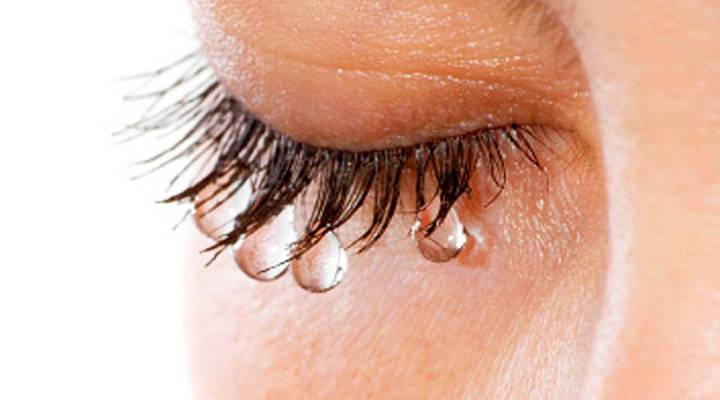
It’s OK to cry at work

It’s an unspoken rule: No matter how unhappy you are at the office, no matter how upset you are about your pay or anything else — the one thing you must never, ever do is cry about it at work. And definitely NOT in front of the boss. But maybe things are changing. Sheryl Sandberg told the Harvard Business School commencement this year that she’s turned on the water works at Facebook. And she’s the COO!
Anne Kreamer, author of “It’s Always Personal: Emotion in the New Workplace,” thinks that crying in the workplace is more acceptable today. In her research, 41 percent of women reported they had cried at work during the past year and 9 percent of men. The surprising finding was that crying made no difference whatsoever in terms of a person’s success; people at all levels of management reported crying on the job.
So where did this idea that crying at work is bad come from?
“I think when women entered the workforce, the dominant sector was obviously male,” Kreamer said. “And I think there was an acculturation of men in the workplace that ‘Hail fellow, well met, stand up, be strong.’ And women had to adapt to that norm when they entered the workplace or risk being ostracized in some way.”
Contrary to some expectations, male managers reported to Kreamer’s survey they were fine with female employees crying. Kreamer found that it was actually female managers who were harsher against crying female employees.
“Women viewed it as an unforgivable sin,” she said. “They were far harsher against other women than against men.”
Kreamer said that crying at work does have some value.
“Tears are kinda like the check engine light on your car dashboard kind of,” she said. “When you feel yourself about to cry, it’s telling you something: You’re frustrated, you’re overworked, you’re feeling undervalued, you don’t have enough resources. It’s a real tool for analysis. It can actually help you perform your work more successfully. If instead of ignoring and tamping down the tears, you can go, ‘Oh wow, what is this telling me?’ And it’s good for the employee and the manager in that situation to think about it.”
Learn more about Kreamer’s finding in the audio above.
There’s a lot happening in the world. Through it all, Marketplace is here for you.
You rely on Marketplace to break down the world’s events and tell you how it affects you in a fact-based, approachable way. We rely on your financial support to keep making that possible.
Your donation today powers the independent journalism that you rely on. For just $5/month, you can help sustain Marketplace so we can keep reporting on the things that matter to you.












